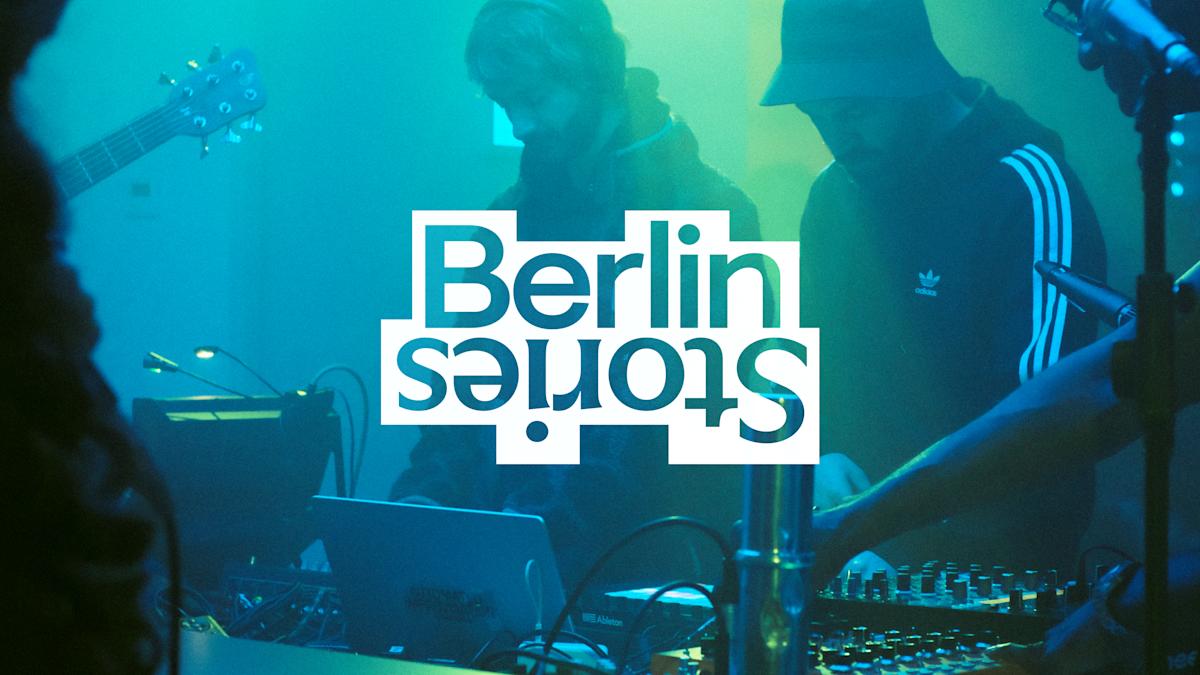
Berlin Stories
This week: Black history month, fusion soundscapes, soli kufa
Loading
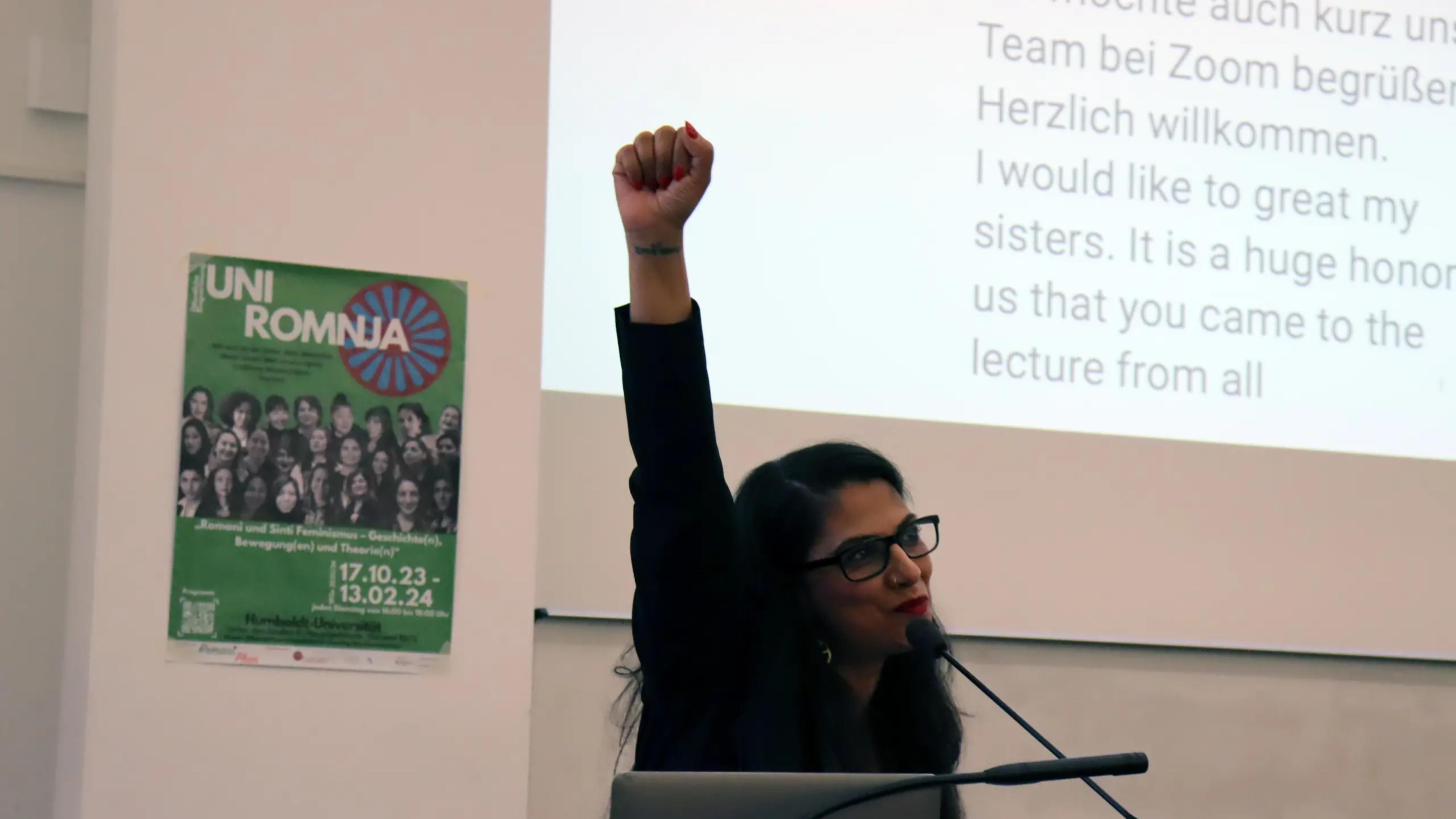
Svetlana Kostić on practices of archiving and knowledge-production as resistance.
By Liv Toerkell
8 April is International Romani Day. It concludes Romnja* Power Month and is a celebration Romani and Sinti cultures, languages and histories.
In Germany and internationally, Romnja* and Sinitzze* continue to face widespread violence, discrimination, erasure, and misrepresentation. The self-organised cultural and educational Romani feminist group RomaniPhen e.V. is working on taking back the narrative by curating an anti-racist and feminist knowledge archive.
RomaniPhen formed at the end of 2018 with the goal of appreciating and disseminating Romani knowledge and empowering Romani people. We spoke to Svetlana Kostić from RomaniPhen about the importance of archiving and the future of Romani feminism.
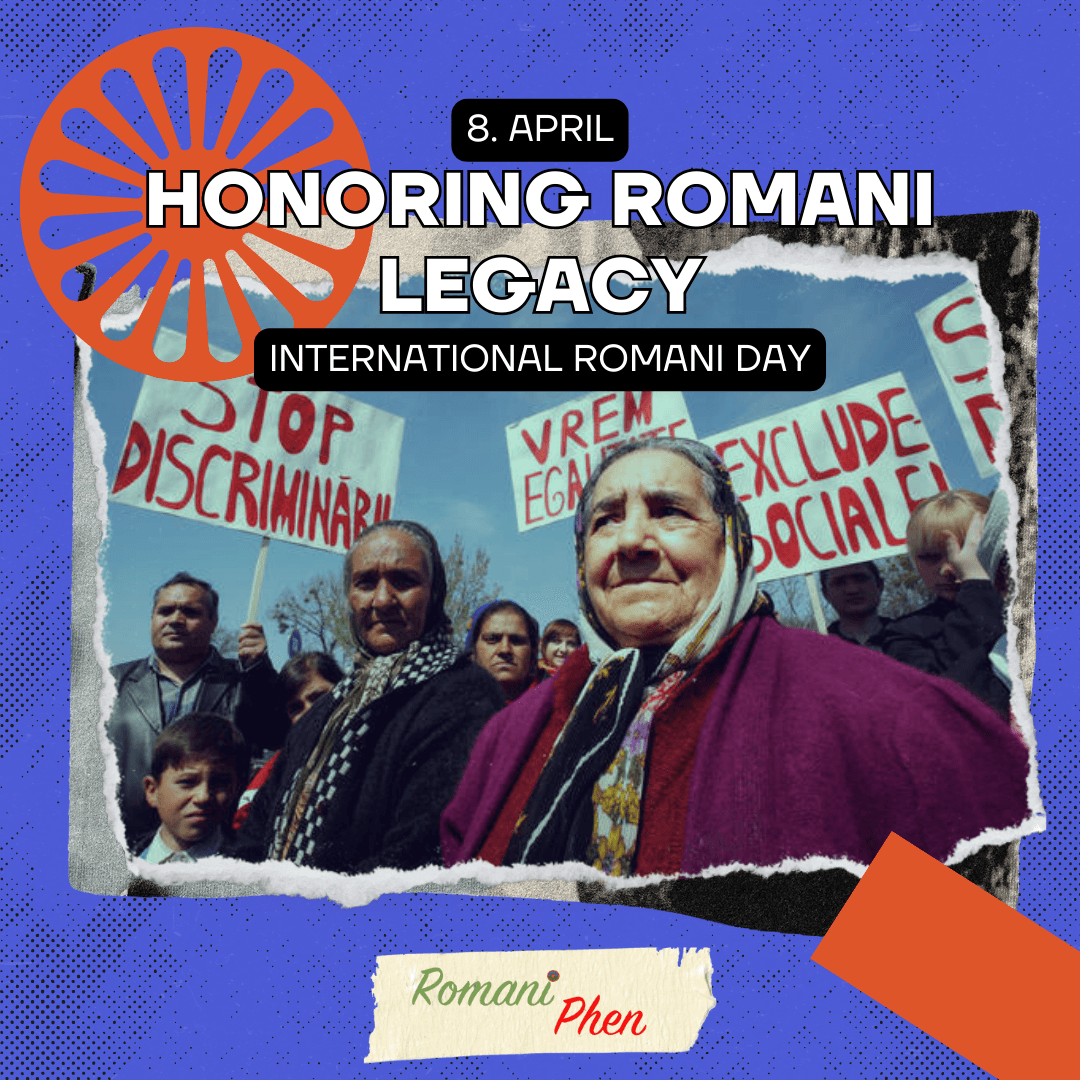
Svetlana, you have been a part of RomaniPhen since 2019. What changes have you witnessed since?
When I started, I was involved in the study of experiences of racism by Sinti and Roma. Since the publication of the report, we at RomaniPhen have been able to integrate this study into our work and focus our projects accordingly. We have grown as an organisation as well as a team and have other projects that cover different focus areas.
What are the struggles and joys of working in a self-organized group?
For me personally, it is a great pleasure to work predominantly independently and creatively. As a feminist organisation, we are mainly women*. Many are also mothers, and their needs and requirements are tended to accordingly, for example, by covering childcare if necessary. Our struggle is with the bureaucratic requirements of the sponsors, as well as the worry about how things will continue when projects end.
A core part of the work at RomaniPhen is the knowledge archive, which can be accessed online via your website but also visited in person at the office. What does it include and how do you go about the work of archiving?
We collect and disseminate material and productions created by Romani people with a special interest in those produced by Romnja (Romani women). Our archive includes, among others, periodicals, books, flyers, posters, and communiqués created by organisations and individuals, materials with a critical anti-racist and feminist perspective that question the power structures that throughout history have oppressed our and other communities, but also those that collect elements of a cultural nature such as language or art.
What are the gaps you notice in other mainstream or academic archives?
Very often conventional archives barely have any material documenting our realities and the scarce material that is available is usually created from Gadje (non-Romani) narratives that tend to orientalise, exotise, or culturise our cosmovisions. Narratives produced by Romani people have always existed and are becoming more and more accessible. However, we often see that the materials that are cited in academic and non-academic spaces are materials produced about us but not by us.
How do you work to counter that and reconnect Romani histories and present?
We intend to create spaces for the dissemination of our narratives, community spaces that move away from the conventionalities of the usual archives and that are accessible to those who do not occupy the spaces of power from where "knowledge" about the Romani people is normally produced. That is why our work is not only about archiving but also about creating, disseminating, and advancing Romani feminist anti-racist narratives. These narratives have always been present in our lives and we try to reconnect with them through shared experiences, oral history, and situated research.
How does archiving influence the past, present, and future?
We believe that archives can be a great tool to question history and document those voices that have been displaced to the margins, while allowing us to be aware of the realities of communities, their struggles, and demands today, while also serving as a collective empowerment tool for our communities, where future generations can look to for reference.
Svetlana, you are involved in a project called Romnja* Power (Main-)Streaming. As part of that, you organised the Uni Romnja lecture series at the Humboldt University of Berlin. What does Romnja* Power (Main-) Streaming mean to you?
As part of the Romnja* Power (Main-)Streaming project, the Romnja* Power month is organised from 8 March, the feminist day of struggle, to 8 April, International Rom*nja Day. During this month we organise many different events, some in cooperation with other Romani organisations, such as readings, panel discussions, film premieres, network meetings, and much more.
To me, the Romnja* Power Mainstreaming project means a powerful, heterogeneous presentation of Romani knowledge and work, and self-empowerment by getting our narrative uncensored into the so-called "mainstream".
How can this work to disrupt the power structures of institutions like universities?
Unfortunately, we are still a long way from institutional change in the areas of education and representation. There are still more than enough homogeneous, stereotypical as well as racist images, knowledge, and history about us. Nevertheless, we have more and more requests from organisations interested in our events, materials, and narratives.
What has been your experience of navigating an institution like Humboldt?
It was a very powerful, historically unique, and empowering experience. However, the way into Humboldt University was not an easy one. We were lucky that our colleague and sister Dr. Jane Weiß has been teaching at HU for a long time. The resources were also a great challenge. We wanted to make the lecture as inclusive as possible, i.e. a live stream, interpreting, as well as for the deaf. We have now archived the lectures on our YouTube channel: Romnja Power. However, we lack the resources to subtitle the lectures in different languages to make them even more accessible.
With the UniRomnja lecture series, you decidedly took up space within academia – a white, Gadje, and male-dominated space that was built on and reproduces inequality and discrimination. But as you said, the focus is not only on academic approaches to archives. RomaniPhen also provides multimedia material, kids’ books, podcasts, workshops, walking tours, and events. How important is this kind of archiving – taking place outside of what is considered to be an “archive” by academia?
Although RomaniPhen is present or has been present in conventional academic spaces, we cannot ignore that the academy is a space of power to which most of us do not have access. Therefore, it must be strongly questioned.
We want to build collective spaces of creation and dissemination that go beyond academic models. For this, it is essential to focus on the expressions that our communities use. For us, does not make sense to focus on conventional materials when our communities are not present, nor do they use these formats when creating or disseminating knowledge. It is essential to collect materials that are accessible, attractive, and inclusive for our people.
Currently, the state of Berlin is planning on building a new S-Bahn line, crossing the ground of the long-fought-for memorial of Pořajmos. This shows once again the lack of significance that the German political landscape attributes to the historic erasure and genocide of Romnja* and Sintizze* as well as the ongoing fight against discrimination that they face. Can you share some thoughts on the importance of the memorial?
The construction of the memorial was the result of a long political work of the Sinti and Romani civil rights movement, which at that time encountered great resistance from the German state. The same state that resisted the construction did not recognize Sinti and Romani as victims of racial persecution by the Nazis until 1982, which again finally changed thanks to the hard work of the civil rights movement. At that time the German state already showed its selective historical memory. A merely symbolic and selective memory culture that does not question historical implications in present realities and only pretends to combat them, is a remembrance of spectacle and not of political transformation.
We at RomaniPhen see the memorial as a space to commemorate, honour, and remember our ancestors who perished at the hands of the German Nazi state. It is a space to expose the historical construction of anti-Romani racism that led to the genocide, and a space to question those power structures that continue to oppress our people today. Therefore, the memorial should be considered as a place of political and spiritual importance of immeasurable character for us, whose protection should be guaranteed, therefore, the attack on the memorial, in its different forms is a great offense and attack against the Romani and Sinti communities.
How is RomaniPhen involved in the fight against plans to uproot the memorial?
From the moment the plans for the possible dismantling of the memorial were made known, back in 2020, RomaniPhen, together with other Romani organizations started a mobilisation and political pressure campaign asking for an alternative route for the S-Bahn line that would avoid the attack on the memorial. We even organised a demonstration and protest in front of the Deutsche Bahn offices. As of today, it seems that the construction plans are still going ahead.
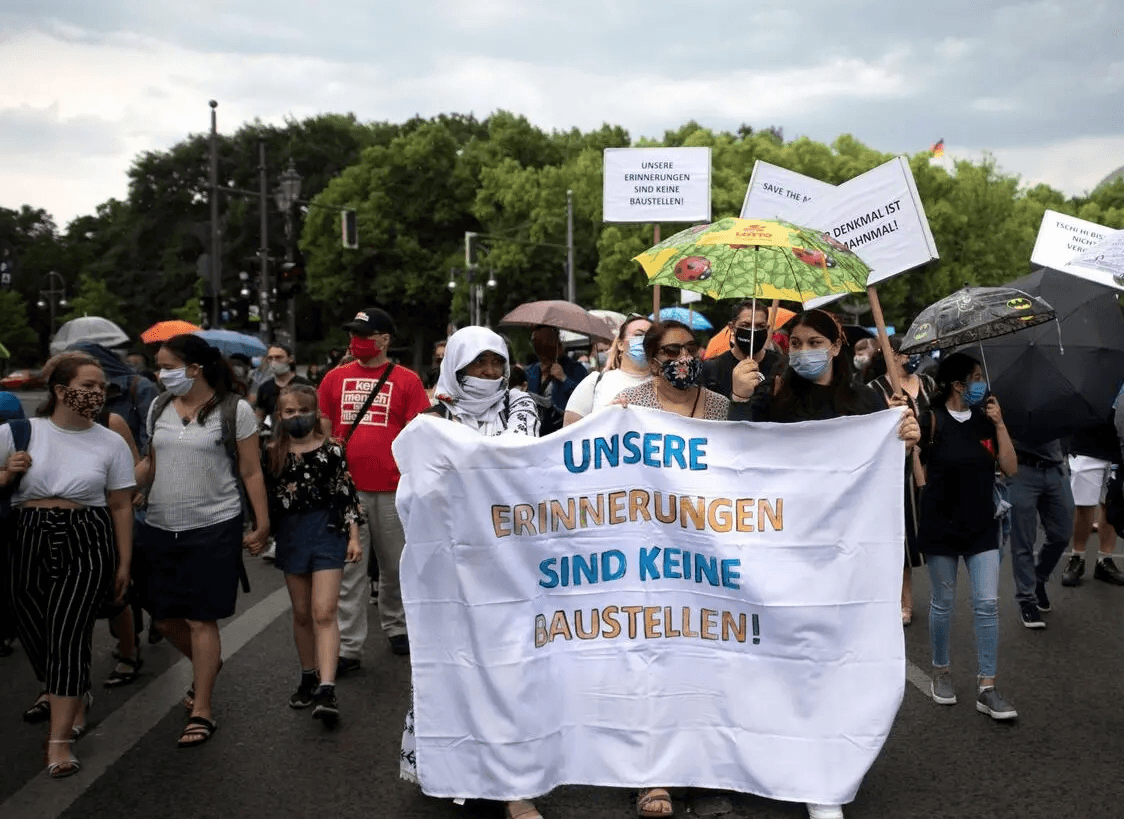
A lot of RomaniPhen’s work focuses on engaging and empowering the next generation of Romnja* and Sintizze* growing up in Germany. You are about to publish the second children’s book, Jokesi Club, representing Sinti and Romani culture and characters, and organise musical projects for children to learn about and celebrate their culture. Why is working with children so important?
Youth work has played a very important role in RomaniPhen's work since the creation of our organisation. One of our first projects was Romani Chaji, a group of Romani girls that aims to create a safer space where they can empower themselves, find room for creativity, and receive support in their goals. Currently, we also have a project on political education through the historical Romani legacy through music.
These spaces and projects are necessary because they serve to counteract the daily racism and discrimination that our youth receive in society as a whole and in the educational system, in particular. We try to create spaces where they can share experiences, access knowledge and information that is not present in conventional educational spaces, or simply have a good time together. This also contributes to increasing self-esteem and building a sense of community.
How are the struggles and goals of RomaniPhen connected to other liberatory struggles (within Germany and beyond)?
We understand that our struggles are connected in many ways with those of other communities and movements. The situation of our communities is not alien to the realities of other peoples. For example, the historical construction of anti-Roma racism has gone hand in hand with the construction of anti-Black racism, anti-Muslim racism, anti-Semitism, and colonialism. The experience of Romani women can be shared by many other racialised and impoverished women. That is why it is essential for RomaniPhen to work together with other communities and organisations to build a world where we all belong.
Listen back to the conversation BIWOC* Rising had with RomaniPhen as part of the (H)our Realities series:
Stay up to date with RomaniPhen via their Newsletter, Website, and Instagram.

This week: Black history month, fusion soundscapes, soli kufa

A screening, conversation, and live performance at Niemetzstraße 1.
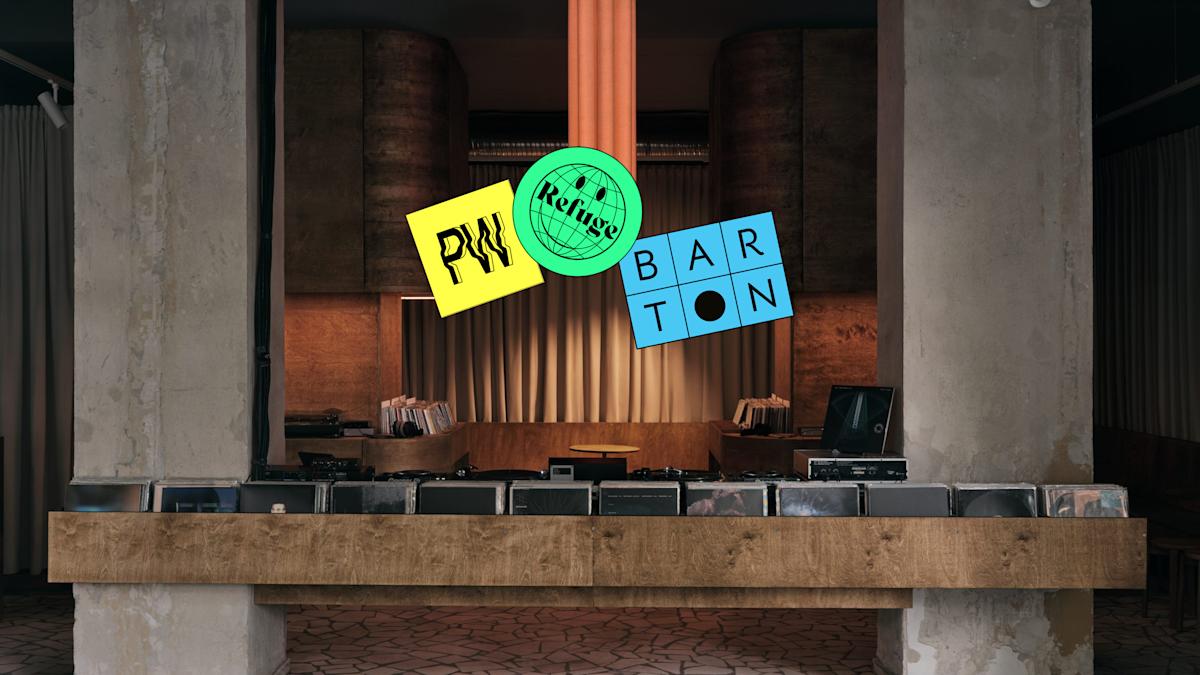
Refuge Worldwide residents head to Romania.